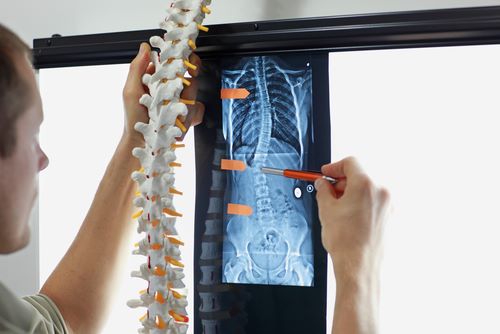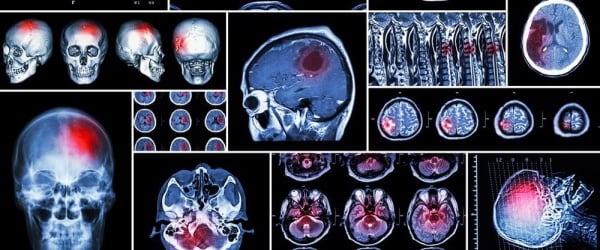Experiencing a car accident can be traumatic, and while visible injuries might be immediately apparent, some of the most serious damage can go unnoticed, especially when it involves abdominal trauma. Abdominal injuries sustained during car accidents are often caused by blunt force impact, such as a collision with the steering wheel or the restraint of a seat belt. These injuries can affect internal organs, blood vessels, and the abdominal wall itself, leading to internal bleeding or other life-threatening complications that might not show obvious symptoms right away.
In this blog, we’ll explore the types, causes, and symptoms of abdominal injuries resulting from car accidents, along with the critical importance of seeking immediate medical attention from an experienced car accident doctor.
Types of Abdominal Injuries
Understanding the various types of abdominal injuries is crucial for anyone involved in a car accident. These injuries can have serious implications for health and recovery. They generally fall into two main categories: blunt force injuries and penetrating injuries.
Statistics show that the rates of AIS 2+ abdominal injury vary significantly based on factors such as age, gender, BMI, and seating position.
Blunt Force Injuries
Blunt force injuries occur when a strong impact causes damage without breaking the skin. This type of trauma is common in car accidents due to collisions with the steering wheel, dashboard, or seatbelt. The force can lead to serious abdominal injury, including damage to the abdominal organs such as the liver, spleen, and kidneys. Symptoms may include severe abdominal pain, swelling, and signs of internal bleeding.
Penetrating Injuries
Penetrating injuries happen when an object breaks through the skin and enters the abdominal cavity. This could be from sharp objects like broken glass or metal debris during a crash. These injuries can cause direct harm to internal organs and blood vessels, leading to life-threatening conditions such as stomach injuries. Symptoms often include intense pain at the site of the injury, bleeding, and potential infection.
Causes of Abdominal Trauma
Abdominal trauma can result from various factors during a car accident. Understanding these causes is crucial for recognizing potential injuries and seeking timely medical attention.
Seatbelt Use and Seat Belt Syndrome
While seatbelts save lives, they can also contribute to abdominal injuries. Seat belt syndrome occurs when the seatbelt exerts force on the abdomen during a crash. This can lead to internal abdominal injuries, including damage to internal organs and blood vessels. It’s essential to wear seatbelts properly, as they can significantly reduce the severity of injuries in an accident.
Airbag Deployment
Airbags are designed to inflate rapidly during a collision to protect occupants. However, the force of deployment can sometimes cause abdominal injuries. The impact may lead to bruising or even more severe internal injuries, particularly if the occupant is seated too close to the airbag. Understanding the potential risks associated with airbags can help individuals take precautions to minimize injury.
Steering Wheel and Dashboard Impact
In a car crash, the steering wheel and dashboard can exert significant force on the abdomen. This impact can cause blunt force trauma, leading to serious injuries. The severity of injuries can vary based on the speed of the vehicle and the angle of the collision. Awareness of these risks can encourage drivers to maintain safe distances from the steering wheel.
Door Intrusion
When a vehicle is struck from the side, door intrusion can occur, resulting in abdominal injuries. The force from the collision can cause the door to compress inward, impacting the occupants. This scenario highlights the importance of vehicle safety features and the need for awareness of one’s surroundings while driving.
Symptoms of Abdominal Trauma
Recognizing the symptoms of abdominal trauma is crucial for timely diagnosis and treatment. After a car accident, individuals may experience various signs that indicate potential injuries to the abdominal area. Here are some common symptoms to watch for:
Persistent Stomach Pain
One of the most immediate indicators of abdominal trauma is persistent stomach pain. This discomfort can range from mild to severe and may worsen with movement. If you experience ongoing pain after an accident, it’s essential to seek medical attention.
Abdomen Rigidity or Stiffness
A rigid or stiff abdomen can signal serious internal injuries. This symptom often indicates that the abdominal muscles are tensing in response to injury. If you notice your abdomen feels hard or tense, it’s vital to get evaluated by a healthcare professional.
Stomach Swelling
Swelling in the abdominal area can occur due to internal bleeding or fluid accumulation. This symptom may not be immediately visible but can develop over time. If you notice any unusual swelling, it’s important to consult a doctor.
Nausea and Vomiting
Nausea and vomiting can accompany abdominal trauma, often as a response to pain or internal injury. These symptoms may indicate a more serious condition, such as internal bleeding, organ damage, or systemic infection. If these symptoms persist, seek medical help promptly.
Fever
A fever following a car accident may suggest an infection or other complications related to abdominal injuries. Monitoring your temperature is important, as a persistent fever can indicate the need for immediate medical evaluation.
Blood in Urine or Stool
Seeing blood in your urine or stool is a serious symptom that requires urgent medical attention. This could indicate significant internal injuries or bleeding within the abdominal cavity. Do not delay in seeking help if you notice this symptom.
Importance of Prompt Medical Attention
When it comes to abdominal trauma from car accidents, it is crucial to seek medical attention immediately. Delays in treatment can lead to serious complications, including life-threatening conditions. Understanding the importance of timely care can make a significant difference in recovery outcomes.
Life-Threatening Complications
Abdominal injuries can lead to severe complications if not addressed quickly. Internal bleeding is one of the most critical issues that may arise. If left untreated, this can result in shock or even death. Injuries to internal organs, such as the liver or spleen, can also cause significant blood loss. Prompt medical evaluation can help identify these risks early and initiate necessary treatments.
Diagnostic Tests
Medical professionals will often perform a series of diagnostic tests to assess the extent of abdominal injuries. Common tests include:
- CT Scans: These provide detailed images of the abdominal cavity and can help identify internal bleeding or organ damage.
- Ultrasounds: Often used to detect fluid accumulation or injuries in the abdominal area.
- X-rays: Useful for spotting fractures or obstructions.
Early diagnosis is key to managing any complications effectively. If you experience symptoms such as persistent stomach pain, swelling, or blood in urine or stool, don’t hesitate to seek medical care. The sooner you get help, the better your chances of a full recovery.
Contact an Experienced Atlanta Car Accident Doctor ASAP!
If you or a loved one has been involved in a car accident and are experiencing any signs of abdominal trauma, don’t wait to seek help. Abdominal injuries can be serious, and prompt medical attention is essential for a full recovery. Our team at Hurt 911® specializes in helping accident victims navigate the path to recovery with expert medical care and compassionate support.
Contact us at 404-687-9000 to schedule an appointment today!









